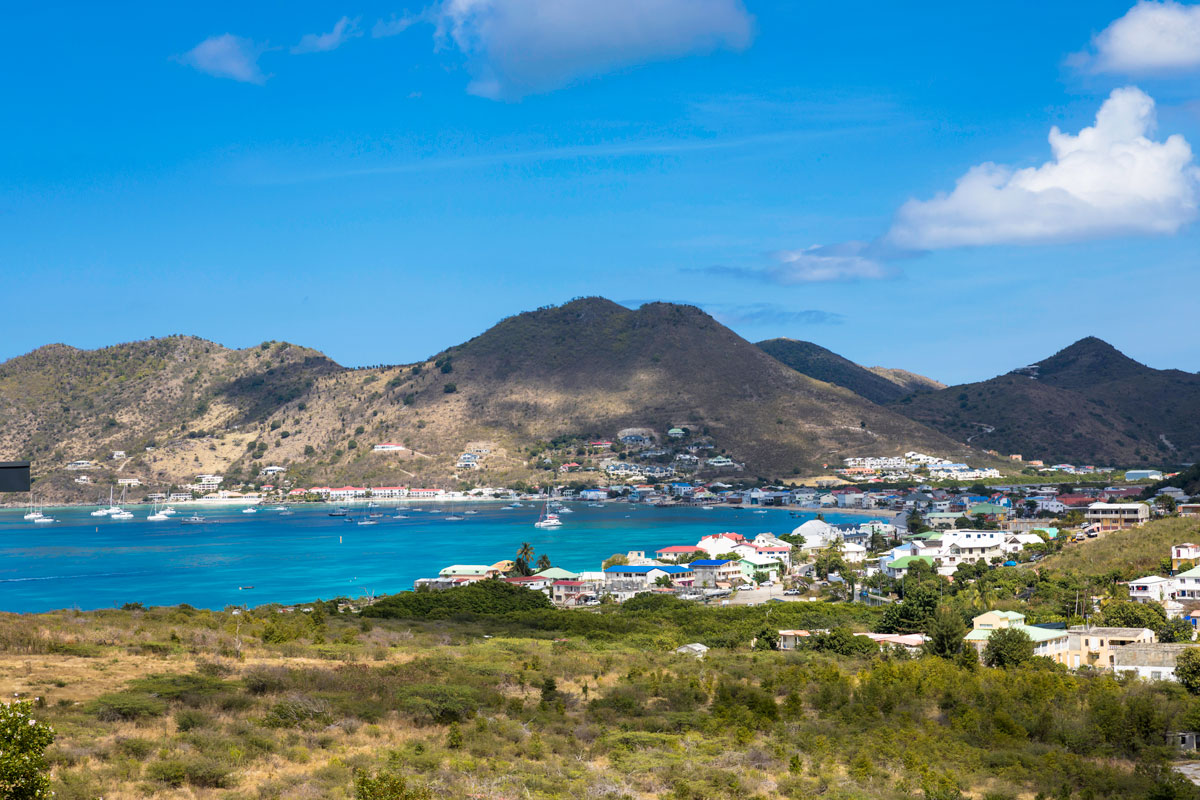
Grand-Case: The Jewel of Saint-Martin
Nestled on the northern coast of the French side of Saint-Martin, Grand-Case has earned its reputation as one of the Caribbean’s most charming and culturally rich destinations. Known widely as the “Gastronomic Capital of the Caribbean”, this picturesque village is more than just a culinary haven—it is a place where French sophistication meets Caribbean vibrancy. From its renowned restaurants and stunning beaches to its vibrant local culture and history, Grand-Case stands as a true jewel of Saint-Martin.
Situated between the calm waters of Grand-Case Bay and lush green hills, the village offers a perfect blend of relaxation, adventure, and cultural immersion. Its narrow streets are lined with colorful Creole cottages, upscale eateries, boutique shops, and art galleries, making it an essential stop for anyone visiting the island. For decades, Grand-Case has drawn visitors not just for its natural beauty, but for its authentic charm and culinary excellence, and it remains one of the most beloved spots on Saint-Martin.
Historical Background
The history of Grand-Case is deeply rooted in the broader narrative of Saint-Martin’s colonial past. Originally inhabited by the Arawak and Carib peoples, the island of Saint-Martin was colonized by the French and Dutch in the 17th century. The village of Grand-Case was established as a small fishing community, with its Creole architecture reflecting the influence of both French colonialism and local Caribbean culture.
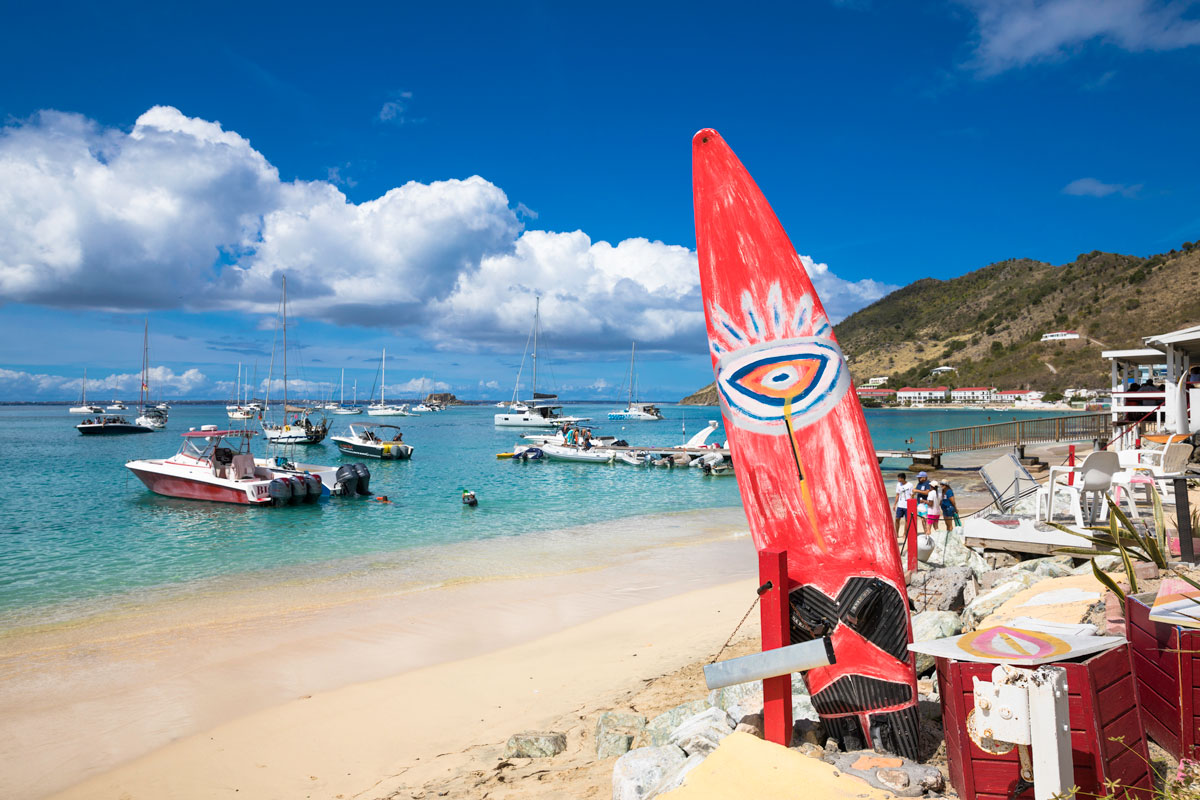
The name “Grand-Case” is derived from the French term for “large house”, a reference to the once-prominent plantation houses that dotted the landscape. These plantations, often growing sugar and tobacco, were an integral part of the island’s economy during the colonial era. Over time, however, as the plantations declined, Grand-Case evolved into a tight-knit fishing village, relying on the sea for its livelihood.
In the 20th century, Grand-Case began to transform as tourism grew on the island. With its prime beachfront location and its strong culinary heritage, the village quickly gained a reputation as a must-visit destination for those exploring Saint-Martin. Despite its growth, Grand-Case has maintained much of its original character, with many of the old Creole houses still standing today as symbols of its rich past.
Cultural Significance
Grand-Case is more than just a tourist destination; it is a living testament to the unique fusion of French and Caribbean cultures that define Saint-Martin. This cultural blend is evident in everything from the architecture to the language spoken by locals. The village is characterized by its charming Creole houses—colorful, wooden structures with intricate fretwork and verandas that harken back to an earlier era.
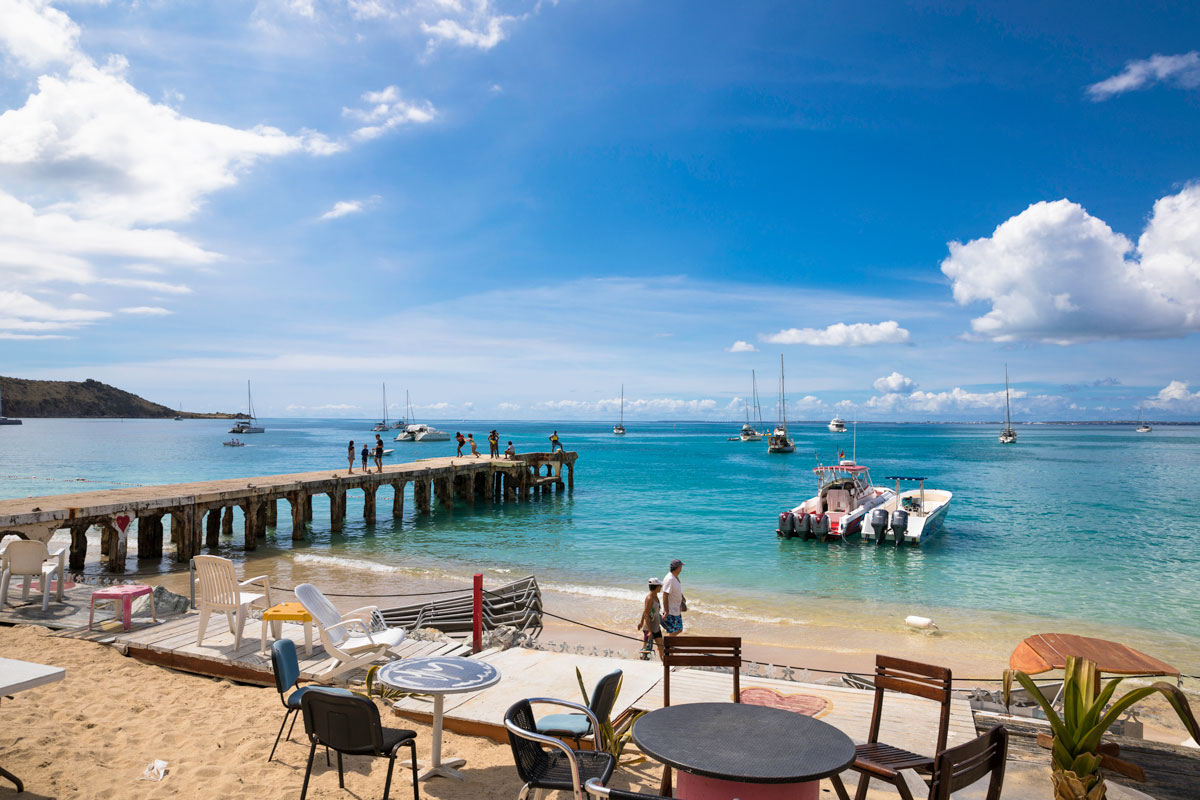
While French is the official language of this part of the island, you’ll hear a mixture of French, Creole, and English being spoken, reflecting the diversity of the local population. The influence of both French and Caribbean traditions is also evident in the local customs, music, and art. Grand-Case is home to several art galleries showcasing the works of local and regional artists, and the village is known for its lively festivals and events that celebrate the island’s rich heritage.
One of the most notable cultural events in Grand-Case is “Les Mardis de Grand-Case” or “Harmony Nights.” Held on Tuesday evenings during the high season, this weekly street fair transforms the village into a vibrant celebration of Caribbean culture. The streets are lined with vendors selling local crafts, food, and drinks, while musicians and dancers perform traditional island music, from reggae to zouk. Harmony Nights offer visitors a chance to experience the authentic spirit of Saint-Martin and immerse themselves in the local culture.
Culinary Scene
Undoubtedly, Grand-Case’s most famous attraction is its unparalleled culinary scene. Often referred to as the “Gastronomic Capital of the Caribbean,” the village boasts a wide range of dining options, from fine French restaurants to casual seaside “lolos.” This culinary diversity, combined with the use of fresh, locally-sourced ingredients, has made Grand-Case a paradise for food lovers.
The “lolos” of Grand-Case are perhaps the most iconic part of its culinary landscape. These open-air barbecue shacks serve up delicious, affordable local fare, such as grilled fish, lobster, ribs, and chicken, all cooked over open flames. Served with sides like rice and peas, plantains, and Johnny cakes, the food at the lolos is hearty, flavorful, and deeply rooted in Caribbean tradition. The most famous lolos include “Sky’s the Limit,” “Talk of the Town,” and “Chez Leandra,” all of which offer an authentic taste of the island.
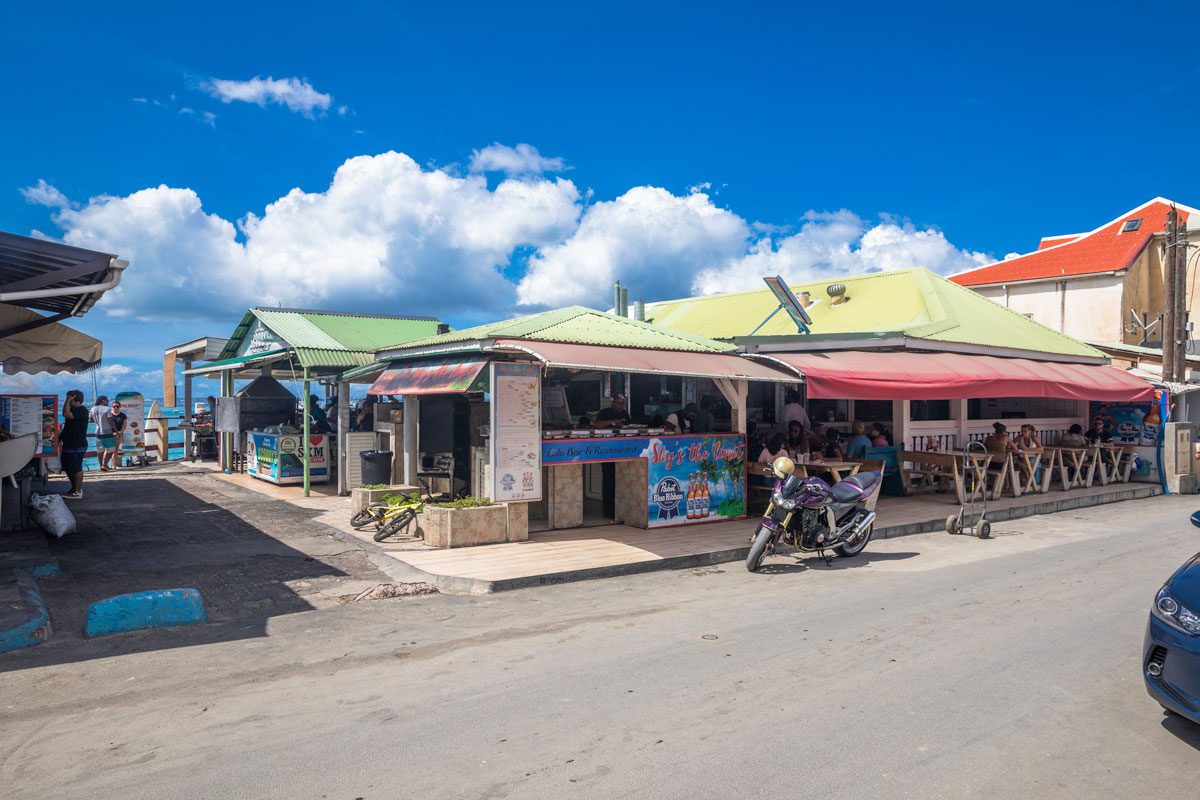
For those seeking a more upscale dining experience, Grand-Case has no shortage of fine restaurants that combine French culinary techniques with Caribbean ingredients. Restaurants such as Le Cottage, Bistrot Caraïbes, and La Villa have become institutions in the village, offering diners exquisite dishes prepared with precision and creativity. Fresh seafood is a staple of the menus, with lobster, mahi-mahi, and tuna often featured, as well as French classics like foie gras and escargot, given a Caribbean twist with tropical fruits and spices.
The village also plays host to several culinary festivals throughout the year, including the Grand-Case Festival of Gastronomy. These events bring together chefs from around the world to showcase their talents and offer visitors a chance to savor a wide variety of gourmet dishes. For food enthusiasts, Grand-Case truly lives up to its reputation as a culinary mecca.
Tourism and Attractions
While Grand-Case is most famous for its food, it is also a hub of activity for tourists seeking relaxation and adventure. The village’s main attraction is its stunning beach, which stretches for nearly a mile along the coast. With its soft, white sand and crystal-clear turquoise waters, Grand-Case Beach is the perfect place to soak up the sun, swim, or simply relax with a good book.
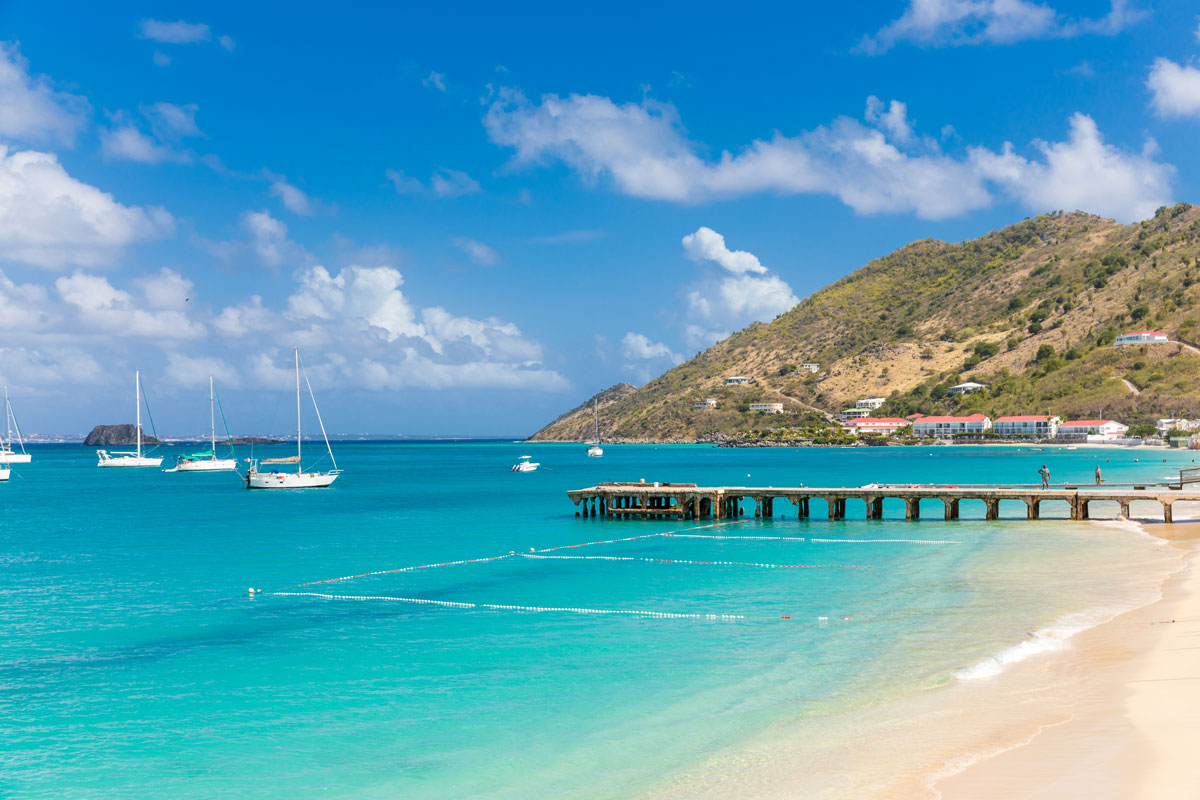
Water sports are also popular in Grand-Case, with many visitors taking advantage of the calm waters to go snorkeling, paddleboarding, or jet skiing. The nearby coral reefs are home to a variety of marine life, making it an excellent spot for diving and snorkeling enthusiasts. Boat tours are also available, offering visitors the chance to explore the coastline, visit nearby islands, or take a sunset cruise.
In addition to its natural beauty, Grand-Case is known for its lively atmosphere and cultural attractions. The village is home to several boutique shops and art galleries, where visitors can purchase local crafts, artwork, and souvenirs. Grand-Case is also the site of several annual events, including the Grand-Case Beach Party, a day-long celebration of music, food, and fun, and the Grand-Case Carnival, a vibrant display of island culture with colorful costumes, music, and dancing.
For those looking to experience the island’s natural beauty, nearby Happy Bay offers a more secluded and tranquil beach experience. Accessible via a short hike from Grand-Case, Happy Bay is a hidden gem that remains relatively untouched by development. Its serene setting, coupled with its crystal-clear waters, makes it a favorite among locals and tourists alike.
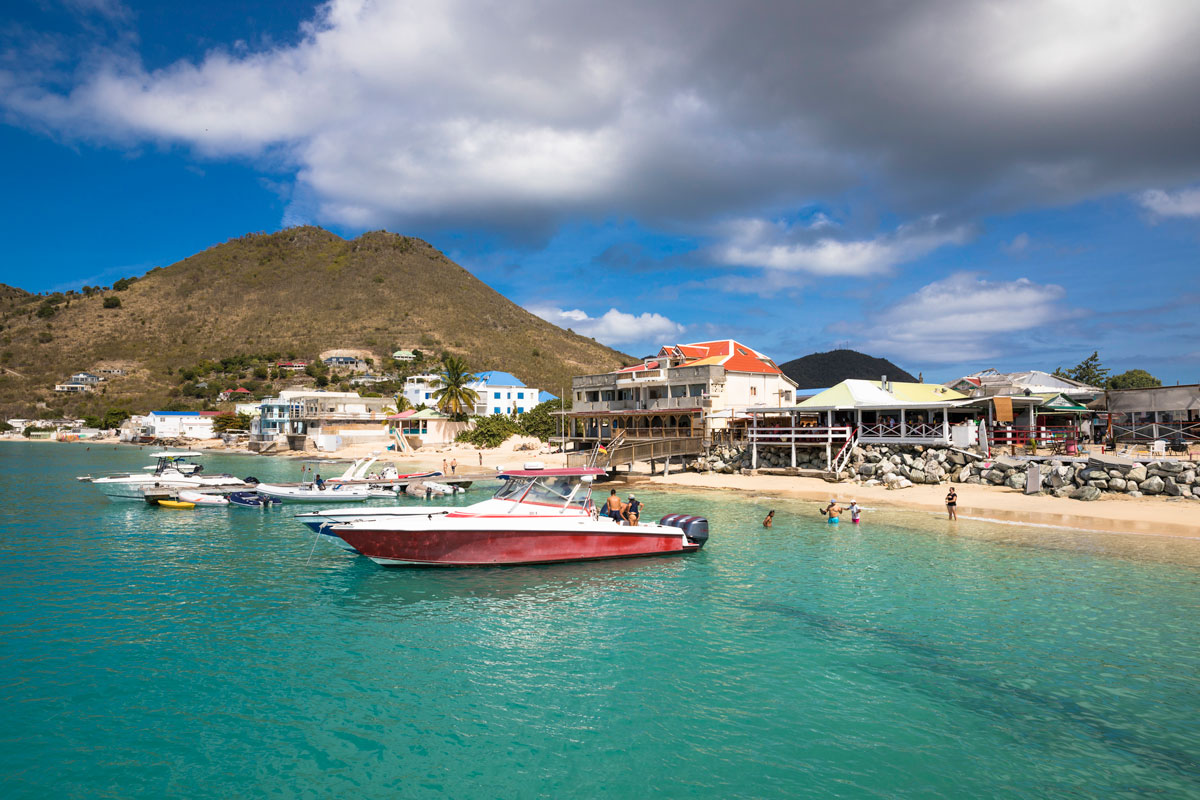
The Beaches of Grand-Case
The beaches in and around Grand-Case are among the finest in the Caribbean, offering visitors a chance to relax and unwind in a tropical paradise. Grand-Case Beach is the most popular, known for its soft white sand, calm waters, and stunning views of the neighboring island of Anguilla. The beach is lined with restaurants, bars, and hotels, making it easy to spend an entire day enjoying the sun and sea.
Further along the coast, visitors will find Petite Plage, a smaller, more intimate beach that offers a quieter alternative to the busier Grand-Case Beach. Petite Plage is ideal for swimming and snorkeling, with its calm, shallow waters and vibrant marine life.
For those seeking a more adventurous beach experience, Happy Bay is a short hike from Grand-Case and offers a more secluded and pristine setting. With its powdery white sand, swaying palm trees, and crystal-clear waters, Happy Bay is the perfect spot for those looking to escape the crowds and enjoy the natural beauty of Saint-Martin.
Events and Festivities
Grand-Case is home to several lively events and festivities throughout the year, many of which celebrate the island’s rich culture and heritage. The most famous of these is Harmony Nights, a weekly street fair held on Tuesday evenings during the high season. Harmony Nights bring the streets of Grand-Case to life with music, dancing, and local vendors selling crafts, food, and drinks. It is a celebration of all things Caribbean and offers visitors a chance to experience the vibrant culture of the island firsthand.
In addition to Harmony Nights, Grand-Case hosts several other annual events, including the Grand-Case Festival of Gastronomy, which draws food lovers from around the world to sample gourmet dishes prepared by top chefs. The village is also a key location for the Saint-Martin Carnival, a lively celebration of music, dance, and colorful costumes that takes place in February.
Economic and Environmental Challenges
Like many Caribbean destinations, Grand-Case has faced its share of economic and environmental challenges in recent years. The village was severely impacted by Hurricane Irma in 2017, which caused widespread damage to homes, businesses, and infrastructure. Many of the historic Creole houses and beachfront restaurants were destroyed, and it took several years for the village to fully recover.
Despite these challenges, Grand-Case has shown remarkable resilience. Local businesses, with the support of the government and international aid, have worked tirelessly to rebuild and restore the village to its former glory. Today, Grand-Case is once again thriving, with new restaurants, hotels, and shops opening alongside the older, more established.
Grand-Case, also hosting the “La Fête de la Mer” event

La Fête de la Mer is an annual maritime festival in Grand Case, Saint-Martin, celebrating the island’s deep connection to the sea. Held in early June, the event offers a range of water activities such as kayaking, stand-up paddleboarding, sailing, snorkeling, and jet skiing. It promotes environmental awareness through educational workshops on coral reef conservation and sustainable fishing. Local traditions like fishing techniques are demonstrated, and the festival showcases Saint-Martin’s vibrant culture with music, dance, and beach games. Open to locals and tourists of all ages, La Fête de la Mer combines fun and eco-awareness, fostering a shared appreciation for the sea and its preservation.
